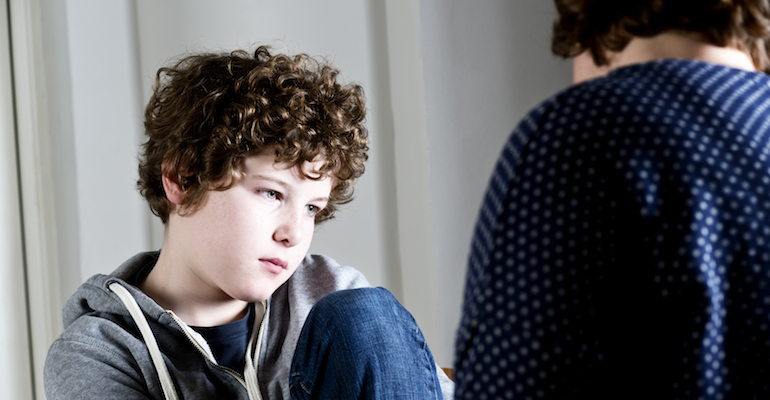Many adoptive parents wonder how to explain troubling new birth parent information to their children. Tough topics can range from discontinued contact to a slip back into drug habits to unexpected medical problems. Here are suggestions to help you take appropriate action, and sample dialogue to guide your discussions.
Explaining Relapse
It is always sad when someone you care about slips into a drug or alcohol habit. The message to convey to a backsliding birth mother is that you care about her, just as you always have. Respond as you would if any other extended family member experienced such a setback. Offer your love and concern, and encourage her to get into rehab.
Miriam, an adoptive mom I know, spoke with her 10-year-old daughter’s birth mom just before she was to enter rehab for the third time. She told her, “We love you. Nothing will change that. We just want you to get better.”
It’s also important (and responsible) to set boundaries as parents. Miriam told her child’s birth mother, “You can’t visit when you are using,” and the birth mother understood. Another adoptive mom, Susan, requested that their next visit be at the agency, instead of at their home, because of her concern about the birth mother’s possible drug use. Encourage other forms of communication, such as letters and e-mails, instead of visits. She will understand that you are not punishing her for using, but that visiting depends on her being drug-free.
You must share with your child the painful news of his birth mother’s relapse. You have probably already discussed with him the reasons that she placed him for adoption. If not, this is a good time to begin those talks. In fact, children understand their birth parents’ adoption decision better if they understand the problems in their lives. If the birth mother had it all together, why did she place a child for adoption? You will be tempted to focus on the positives (“She loved you so much that she chose us to be your parents”), but don’t be afraid to talk about negatives, too. Your child can understand and accept concrete information more easily than unknowns.
You might begin by saying, “Your birth mother is again experiencing the drug problems she had at the time of your placement.” Tell your child that you are sad to see her struggling with these problems, that you still love her and hope that someday she will be better. Remind him that, at the time of his adoption, his birth mother wanted him to have stability that she couldn’t provide. Her continuing struggle explains why she made an adoption decision.
Explaining Health Problems
If medical or mental health problems come up in later years, be honest with your child about them. Perhaps a birth parent has been diagnosed with a serious medical condition. Kids can handle negatives better than we think!
One adoptee I know, Emily, treasures her memories of visits with her birth mother over the first 10 years of her life. Her birth mother subsequently died of leukemia. If this had been a closed adoption, Emily (now a college student) would have never had a loving relationship with her birth mother.
Explaining Discontinued Contact
Then there are those birth parents who simply discontinue contact. This is difficult for children to understand. Seven-year-old Sean was used to visiting with his birth mother once or twice a year. He always enjoyed seeing her. Suddenly, contact stopped. Sean’s parents suspected that this was because of her relationship with a new boyfriend. Sean felt he was being abandoned again. First, she placed him for adoption, and now she had stopped contact. Sean’s parents saw that he was grieving, and they encouraged him to talk about his feelings. They told Sean that they were sad, too. They decided that they would write a letter to Sean’s birth mother, in the hope that contact would resume in the future.
One adoptive couple encouraged their daughter, Alexis, to write a letter to her birth mother each year, even though they didn’t know where to send them. Each letter included photos and described her activities over the past year. The family saved these letters, hoping that one day Alexis’s birth mother would re-enter their lives. When she did, she would have a collection of letters and photos documenting the years she missed. Alexis enjoyed “communicating” with her birth mother.
In dealing with any problems that arise, the key is to communicate openly and honestly with your child, and to allow him to express his feelings.

